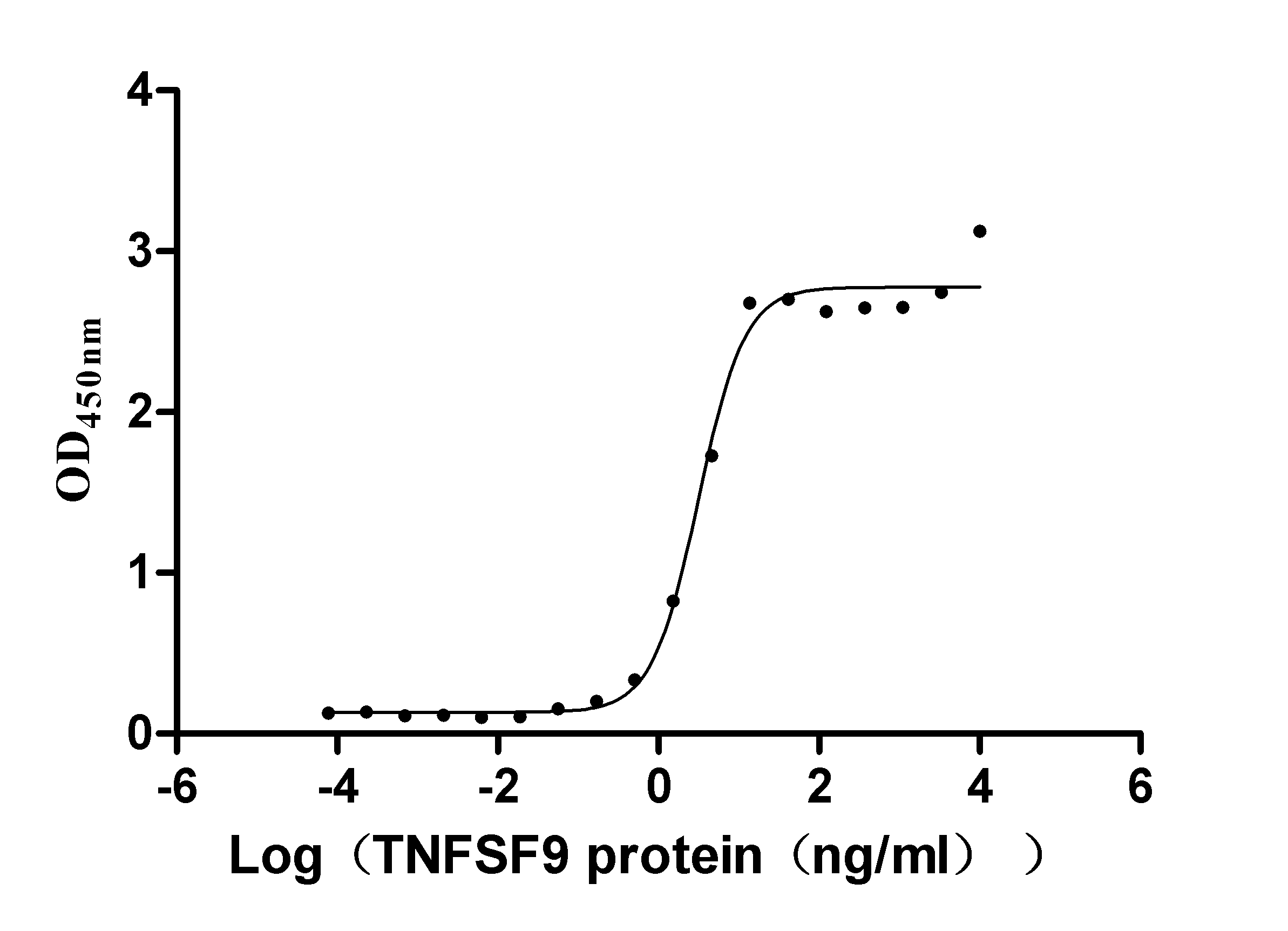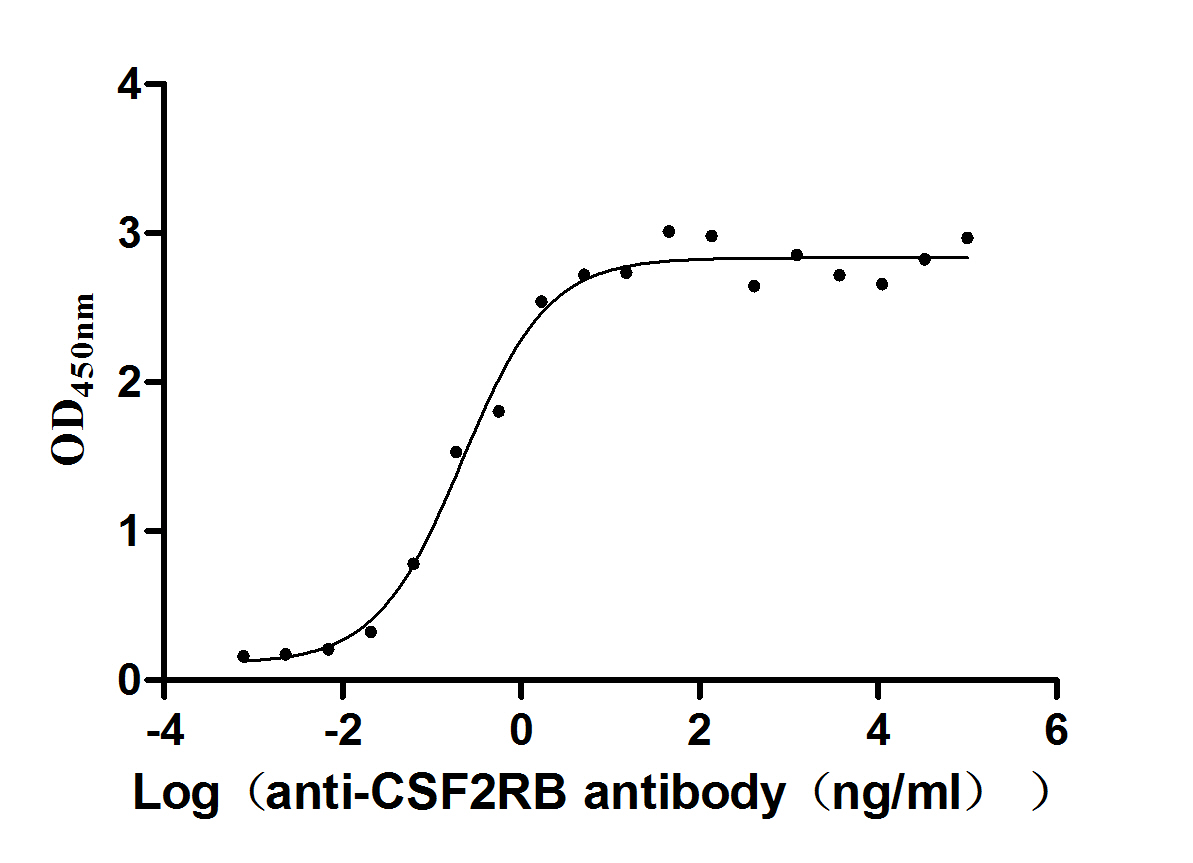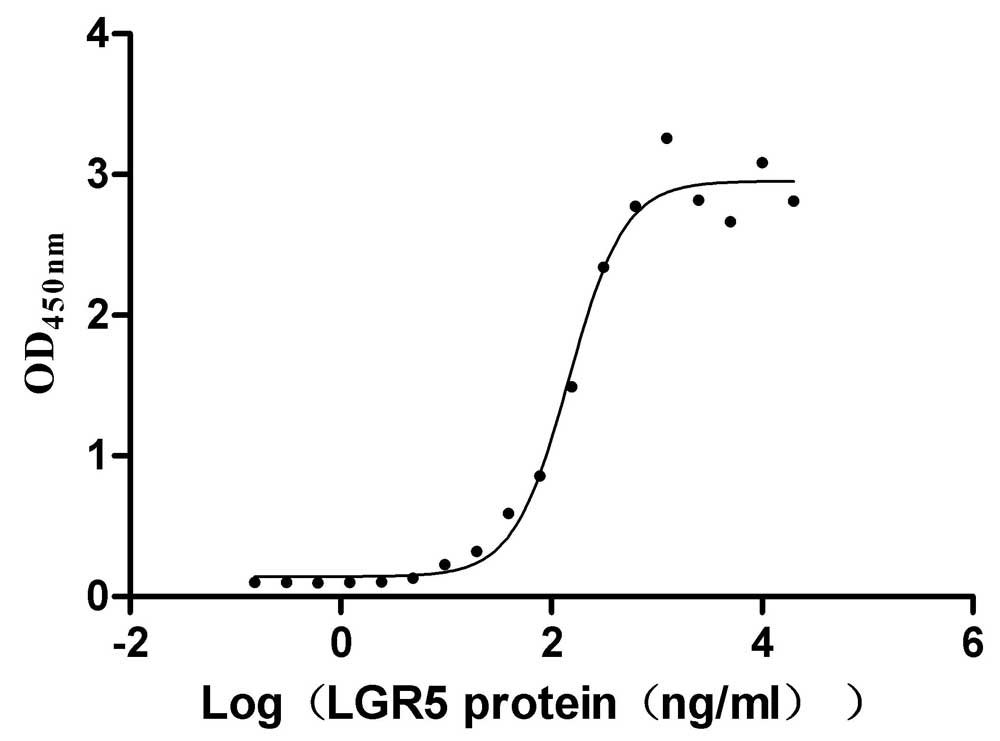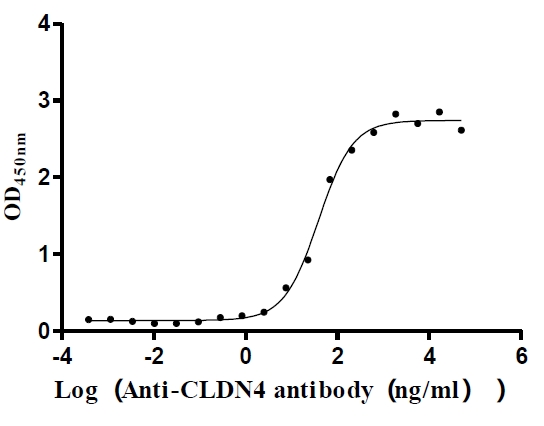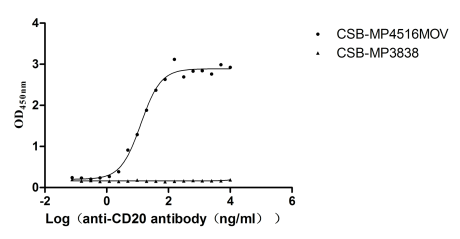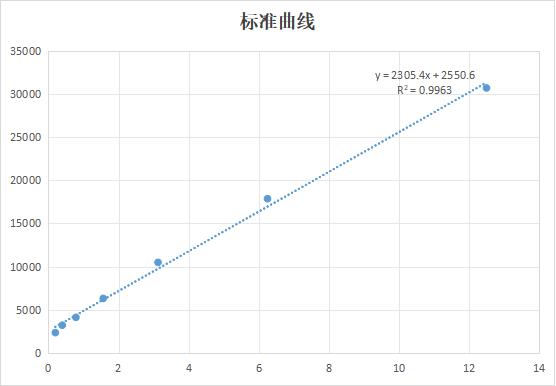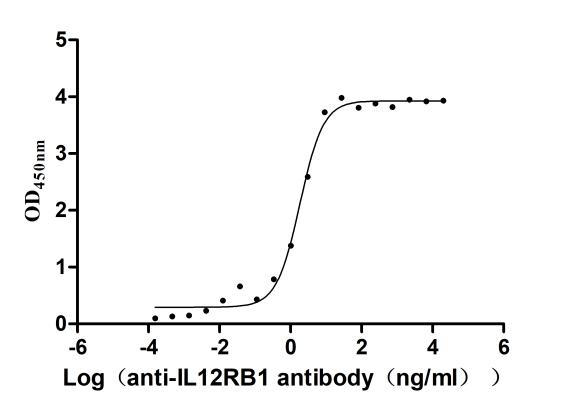Recombinant Human Desmoglein-4 (DSG4), partial
-
中文名稱:人DSG4重組蛋白
-
貨號(hào):CSB-YP768199HU
-
規(guī)格:
-
來(lái)源:Yeast
-
其他:
-
中文名稱:人DSG4重組蛋白
-
貨號(hào):CSB-EP768199HU
-
規(guī)格:
-
來(lái)源:E.coli
-
其他:
-
中文名稱:人DSG4重組蛋白
-
貨號(hào):CSB-EP768199HU-B
-
規(guī)格:
-
來(lái)源:E.coli
-
共軛:Avi-tag Biotinylated
E. coli biotin ligase (BirA) is highly specific in covalently attaching biotin to the 15 amino acid AviTag peptide. This recombinant protein was biotinylated in vivo by AviTag-BirA technology, which method is BriA catalyzes amide linkage between the biotin and the specific lysine of the AviTag.
-
其他:
-
中文名稱:人DSG4重組蛋白
-
貨號(hào):CSB-BP768199HU
-
規(guī)格:
-
來(lái)源:Baculovirus
-
其他:
-
中文名稱:人DSG4重組蛋白
-
貨號(hào):CSB-MP768199HU
-
規(guī)格:
-
來(lái)源:Mammalian cell
-
其他:
產(chǎn)品詳情
-
純度:>85% (SDS-PAGE)
-
基因名:DSG4
-
Uniprot No.:
-
別名:DSG4; CDHF13; Desmoglein-4; Cadherin family member 13
-
種屬:Homo sapiens (Human)
-
蛋白長(zhǎng)度:Partial
-
蛋白標(biāo)簽:Tag?type?will?be?determined?during?the?manufacturing?process.
The tag type will be determined during production process. If you have specified tag type, please tell us and we will develop the specified tag preferentially. -
產(chǎn)品提供形式:Lyophilized powder
Note: We will preferentially ship the format that we have in stock, however, if you have any special requirement for the format, please remark your requirement when placing the order, we will prepare according to your demand. -
復(fù)溶:We recommend that this vial be briefly centrifuged prior to opening to bring the contents to the bottom. Please reconstitute protein in deionized sterile water to a concentration of 0.1-1.0 mg/mL.We recommend to add 5-50% of glycerol (final concentration) and aliquot for long-term storage at -20℃/-80℃. Our default final concentration of glycerol is 50%. Customers could use it as reference.
-
儲(chǔ)存條件:Store at -20°C/-80°C upon receipt, aliquoting is necessary for mutiple use. Avoid repeated freeze-thaw cycles.
-
保質(zhì)期:The shelf life is related to many factors, storage state, buffer ingredients, storage temperature and the stability of the protein itself.
Generally, the shelf life of liquid form is 6 months at -20°C/-80°C. The shelf life of lyophilized form is 12 months at -20°C/-80°C. -
貨期:Delivery time may differ from different purchasing way or location, please kindly consult your local distributors for specific delivery time.Note: All of our proteins are default shipped with normal blue ice packs, if you request to ship with dry ice, please communicate with us in advance and extra fees will be charged.
-
注意事項(xiàng):Repeated freezing and thawing is not recommended. Store working aliquots at 4°C for up to one week.
-
Datasheet :Please contact us to get it.
靶點(diǎn)詳情
-
功能:Component of intercellular desmosome junctions. Involved in the interaction of plaque proteins and intermediate filaments mediating cell-cell adhesion. Coordinates the transition from proliferation to differentiation in hair follicle keratinocytes.
-
基因功能參考文獻(xiàn):
- This study further extends the body of evidence that mutations in the DSG4 gene result in both hypotrichosis and monilethrix-like scalp hair. PMID: 25251037
- Genetic analysis of striate palmoplantar keratoderma and hypotrichosis identified their responsible genes as desmogleins 1 and 4, respectively. PMID: 22189787
- Epitopes of Dsg4 may play a role in the pathogenesis of pemphigus vulgaris . PMID: 17294735
- show that HOXC13, LEF1 and FOXN1 repress DSG4 transcription and provide in vitro and in vivo evidence correlating the Notch pathway with the activation and/or maintenance of DSG4 expression in the hair follicle. PMID: 19683850
- the human desmoglein 4 gene (DSG4) demonstrates that it is composed of 16 exons spanning approximately 37 kb of 18q12 and is situated between DSG1 and DSG3. PMID: 12648213
- The essential role of desmoglein 4 in skin was established by identifying mutations in families with inherited hypotrichosis, as well as in the lanceolate hair mouse. We also show that DSG4 is an autoantigen in pemphigus vulgaris. PMID: 12705872
- DSG4 is pathogenic in pemphigus and staphylococcal scalded skin syndrome. PMID: 15545999
- A large, intragenic deletion in the desmoglein 4 gene (DSG4) is the underlying mutation in an autosomal recessive form of hypotrichosis. PMID: 16382669
- The DSG4 protein is expressed in the more highly differentiated layers of the epidermis. PMID: 16533311
- identification of a single nucleotide deletion within exon 3 of DSG4, designated 87delG in a Pakistani family with localized autosomal recessive hypotrichosis; this results in a frameshift and premature termination codon 162 bp downstream of the deletion PMID: 17392831
顯示更多
收起更多
-
相關(guān)疾?。?/div>Hypotrichosis 6 (HYPT6)亞細(xì)胞定位:Cell membrane; Single-pass type I membrane protein. Cell junction, desmosome.組織特異性:Highly expressed in skin, testis and prostate; less in salivary gland. In scalp follicles, present in the inner root sheath (IRS) and all layers of the matrix and precortex.數(shù)據(jù)庫(kù)鏈接:
Most popular with customers
-
Recombinant Human Tumor necrosis factor ligand superfamily member 9 (TNFSF9), partial (Active)
Express system: Mammalian cell
Species: Homo sapiens (Human)
-
Recombinant Human Cytokine receptor common subunit beta (CSF2RB), partial (Active)
Express system: Mammalian cell
Species: Homo sapiens (Human)
-
Recombinant Human R-spondin-1 (RSPO1), partial (Active)
Express system: Mammalian cell
Species: Homo sapiens (Human)
-
Recombinant Human Claudin-4 (CLDN4)-VLPs (Active)
Express system: Mammalian cell
Species: Homo sapiens (Human)
-
Recombinant Macaca fascicularis Membrane spanning 4-domains A1 (MS4A1)-VLPs (Active)
Express system: Mammalian cell
Species: Macaca fascicularis (Crab-eating macaque) (Cynomolgus monkey)
-
Recombinant Human Killer cell immunoglobulin-like receptor 3DL2 (KIR3DL2), partial (Active)
Express system: Mammalian cell
Species: Homo sapiens (Human)
-
Recombinant Human Urokinase-type plasminogen activator(PLAU) (Active)
Express system: Mammalian cell
Species: Homo sapiens (Human)
-
Recombinant Human Interleukin-12 receptor subunit beta-1(IL12RB1),partial (Active)
Express system: Mammalian cell
Species: Homo sapiens (Human)


